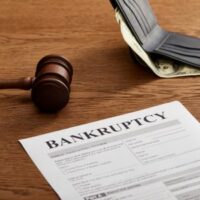Things To Consider About Bankruptcy And Cosigners

There are many different situations in which an individual might ask a friend or family member to cosign a loan they are seeking, whether it is a loan for an automobile, for a mortgage, or for another asset. As the Consumer Financial Protection Bureau (CFPB) explains, a cosigner “takes full responsibility for paying back a loan, along with the primary borrower.” Indeed, a cosigner “is obligated to pay any missed payments and even the full amount of the loan if the borrower does not pay.” Further, if the borrower becomes late on payments, the cosigner’s credit can suffer. Why would a person agree to cosign a loan? In many cases where a borrower is ineligible for a loan on their own based on their credit score, income, or financial profile, the lender will only agree to the loan if the borrower has a creditworthy cosigner who is willing to cosign the loan.
In a consumer bankruptcy case filed by the borrower, cosigners can face consequences. If a cosigner files for bankruptcy, the borrower will still owe the amount on the loan. A West Palm Beach bankruptcy lawyer at our firm can provide you with more information.
More People Cosign Loans Than You Might Think
More people cosign loans than you might think, and as a result, the issue of cosigners comes up in bankruptcy cases more often than you might expect. According to an article in Bankrate, more than 20 percent of people who say they have helped a friend or family member financially report that they cosigned a loan.
Cosigners Will Still Owe the Lender After a Borrower’s Bankruptcy
If a borrower files for bankruptcy, it is critical to understand that the cosigner will still be responsible for the loan. When a borrower files for Chapter 13 bankruptcy, this might not be an issue if the repayment plan includes fully repaying the debt for which the cosigner is also responsible. However, in a Chapter 7 bankruptcy case, the cosigner will certainly be responsible for the loan after the borrower’s debts are discharged. The borrower (i.e., the debtor in the bankruptcy case) may be able to reaffirm the debt so that the cosigner is not responsible for it.
Cosigners Who File for Bankruptcy Themselves Will Not Wipe Out the Borrower’s Obligation to Repay the Debt
Finally, what will happen if a cosigner files for bankruptcy? While a cosigner may have been financially secure at the time of cosigning a loan for the borrower, circumstances can change. The cosigner might have lost their job, or the cosigner might have experienced a medical emergency that resulted in hundreds of thousands of dollars in medical costs. Regardless of the reason for the cosigners’ decision to file for bankruptcy, it is important for an original borrower to understand that the cosigner’s bankruptcy will not wipe out the debt for the borrower and will not eliminate the borrower’s obligation to repay the debt. To be clear, if your cosigner files for bankruptcy, you still owe the lender.
Contact a Bankruptcy Attorney in West Palm Beach
Before you file for bankruptcy, it is important to understand how your decision to file and the type of bankruptcy for which you file could impact a cosigner. One of the experienced West Palm Beach bankruptcy lawyers at Kelley Kaplan & Eller can say more, and we can provide you with more information about your bankruptcy case in South Florida.
Sources:
consumerfinance.gov/ask-cfpb/what-is-a-co-signer-en-745/#:~:text=A%20co%2Dsigner%20takes%20full,the%20borrower%20doesn’t%20pay
bankrate.com/finance/credit-cards/lending-money-survey-2019/



